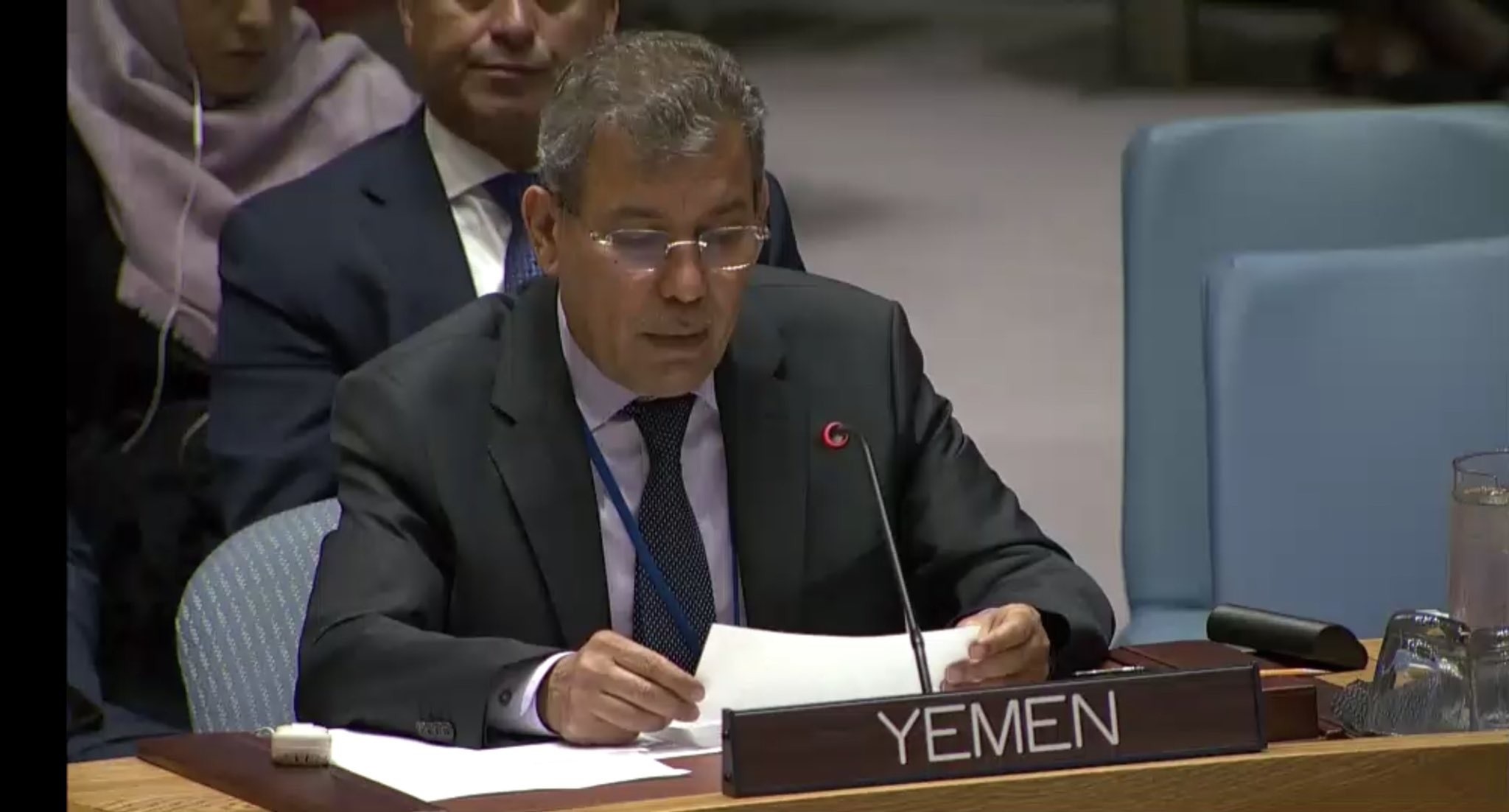


Barran Press
On December 11, 2024, the internationally recognized Yemeni government stated it is time for Iran to withdraw its influence from Yemen and respect the country's sovereignty and identity. This call comes as part of a broader effort to empower Yemenis to build their own future.
The remarks were made by Yemen's permanent representative to the United Nations, Ambassador Abdullah Al-Saadi, during an open session of the UN Security Council addressing the situation in the Middle East, specifically Yemen. He highlighted various political, economic, and humanitarian challenges facing the nation, according to the official Yemeni news agency, Saba.
Ambassador Al-Saadi emphasized that the missing element in Yemen's current landscape is peace, which has been hindered by the Houthi group's refusal to engage in efforts aimed at resolving the crisis. He noted the Houthis' ongoing military escalation and systematic economic warfare against the Yemeni people.
"Peace in Yemen depends on the presence of a true partner who believes in equal rights and citizenship for all, renounces violence as a means of imposing agendas, and prioritizes the interests of the people above all else," he stated.
He reaffirmed the Yemeni government's commitment to a comprehensive, just, and sustainable peace process based on agreed-upon political solution references. The government continues to support the efforts of the UN Special Envoy to Yemen and all initiatives aimed at resolving the crisis and fulfilling the aspirations of the Yemeni people.
Al-Saadi pointed out that the Houthi escalations in the Red Sea and Bab al-Mandab Strait pose not only a threat to Yemen's stability but also a serious risk to regional and international security, maritime navigation, and global trade, representing a retreat from peace obligations.
He urged the international community to heed the Yemeni government's warnings about the dangers posed by the Houthis to the Stockholm Agreement, including the ceasefire in Hodeidah, as the group continues to control the city and its ports.
The ambassador called for increased international support in economic and developmental areas, particularly in bolstering Yemen’s security capabilities, including its coast guard, to address security challenges threatening international navigation in the Red Sea and surrounding waters.
He also addressed the economic challenges faced by the government due to a two-year halt in oil exports caused by Houthi attacks on oil facilities, depriving the Yemeni people of vital resources.
Furthermore, he condemned the Houthis for ongoing human rights abuses, including kidnappings, repression, enforced disappearances, and arbitrary detentions of civilians in areas under their control, as well as recent drone attacks on populated areas, such as a market in Taiz that resulted in numerous civilian casualties.
Ambassador Al-Saadi reiterated the Yemeni government’s call for the UN and the Security Council to intensify efforts for the immediate and unconditional release of all detainees, especially humanitarian workers and the forcibly disappeared, emphasizing the principle of all-for-all.
He expressed the Yemeni government's hope to initiate a donors' conference to mobilize funding for the humanitarian response plan for Yemen in 2025.